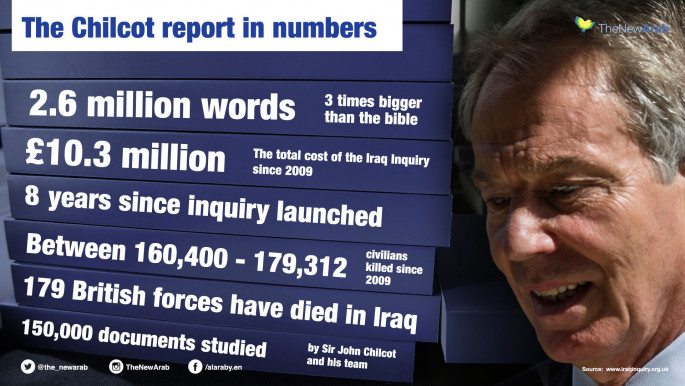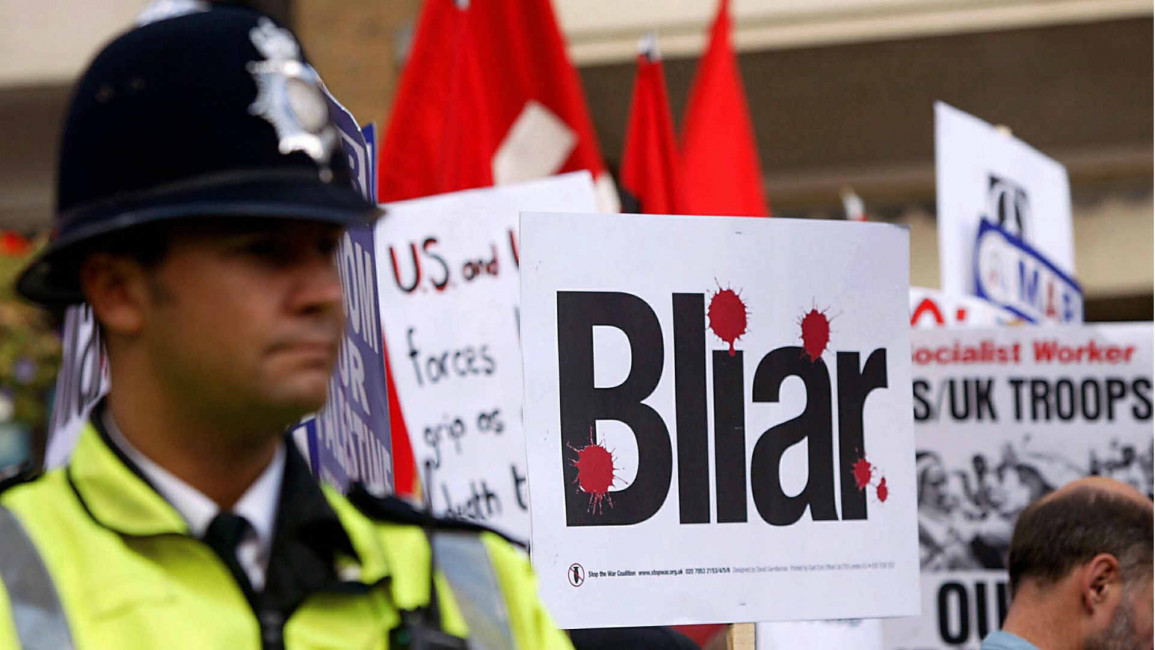
Blair was 'economical with the truth' before the Iraq war? Who'd have guessed?
Sir John Chilcot led a government investigation into the legality of the Iraq War and lessons learned for the future.
He told the BBC in an interview on Thursday that Tony Blair was "not straight" with the British people before the 2003 Iraq War. The interview marked the first anniversary of his report.
In typical, roundabout civil servant language - drilled into recruits so they can speak for extended, boring periods of time without actually saying anything - Chilcot basically said that Blair was, to coin a phrase, a bit of a "Bliar".
But the opinions of British people don't really matter in this regard. Instead we should ask any the families of the Iraqi people who have died in the continual fighting since the 2003 invasion - or the millions that either fled their homes or lived under Islamic State group oppression.
We should ask the Iraqi people for a more accurate description of the man who destroyed their country.
'Emotionally truthful'
The important part of this interview is that Chilcot called his old mate a partial liar - before touching up his words by adding he had been "emotionally truthful".
 |
Any prime minister taking a country into war has got to be straight with the nation - I don't believe that was the case in the Iraq instance |
 |
Don't forget that Blair gave Sir Chilcot his knighthood in 1998 - after the two held clandestine meetings in a drinking club for "gentlemen who travelled abroad".
The two were close buddies and when an inquiry was first formed in 2004, Blair chose Chilcot to lead the investigation against him.
Let's think about that again. The man behind the inquiry into Blair's war was always Blair's first choice of inquisitor.
Public trust in inquiries is currently at an all-time low. The Grenfell disaster survivors have rejected the latest attempt due to its narrow remit and chances of a whitewash. It took seventeen years and two inquiries to get to the truth behind the 1989 Hillsborough disaster, for example.
But everyone already knew the truth before any of these inquiries even started - and when the Chilcot report finally came out - no-one really expected much. The inquiry had no teeth and never stood a chance of harming the real war criminals.
"It is now clear that policy on Iraq was made on the basis of flawed intelligence and assessments. They were not challenged, and they should have been," the 2.6-million-word Chilcot Inquiry said.
Shocker.
 |
|
| [Click to enlarge] |
Flash forward to today, when the architect of this monumentally expensive, seven-year inquiry into the biggest shame in Britain's recent history gave a BBC interview - who really expected him to say anything of value?
"I think any prime minister taking a country into war has got to be straight with the nation and carry it, so far as possible, with him or her," he said.
"I don't believe that was the case in the Iraq instance."
'Aggression'?
There remains a glimmer of hope that Blair, along with former foreign secretary Jack Straw and former attorney general Lord Goldsmith, may face justice for their actions.
The UK High Court is currently hearing a case whether Blair should be prosecuted for "aggression", following the findings of the Chilcot report.
The case is to decide whether the act of aggression is illegal under UK law and whether the former prime minister and his chums could be prosecuted.
The case was first heard by magistrates last year. The court heard that Blair could not be prosecuted as he enjoyed immunity.
Michael Mansfield QC, prosecuting, told the court: "It was an unlawful war."
Most British people knew that in 2003, when a million people took to the streets of London and hundreds of thousands more proteted around the country. We knew Blair wasn't telling the truth before, during or after the Iraq war. We're not stupid.Follow Rob Cusack on Twitter: @rob_cusack



